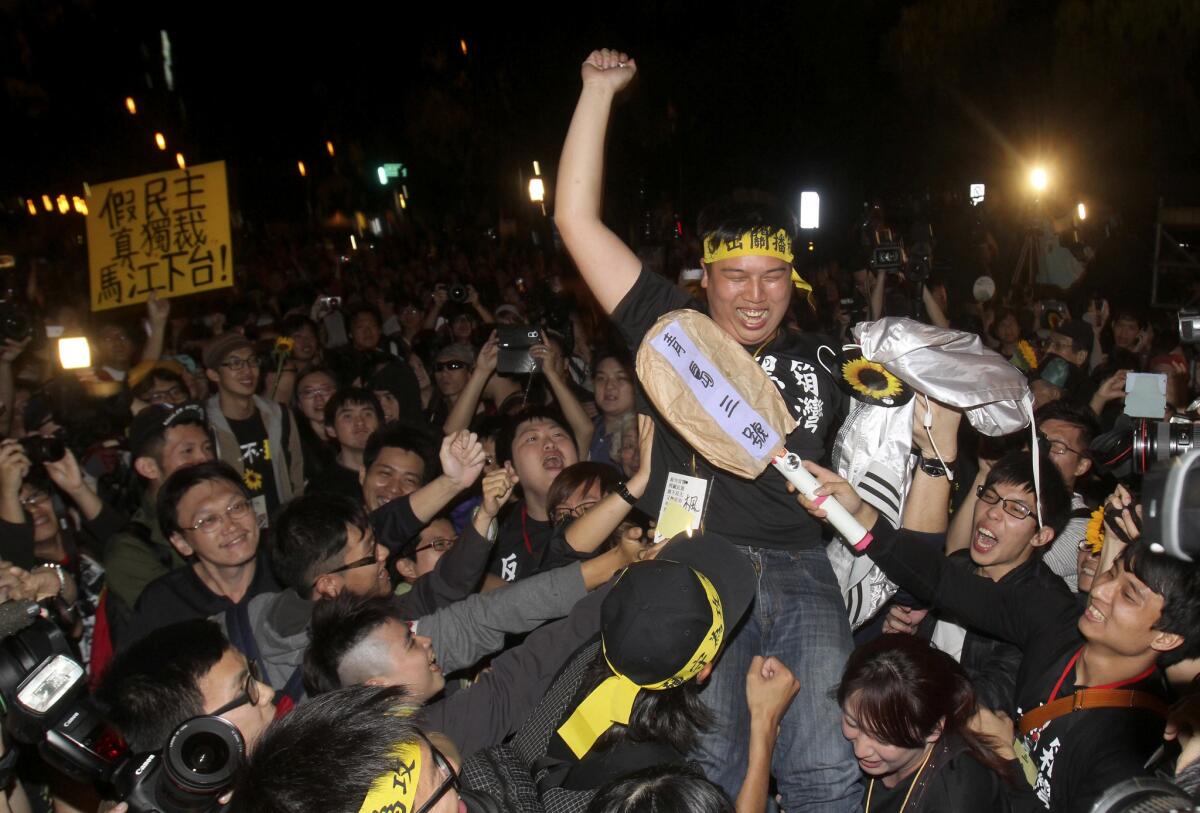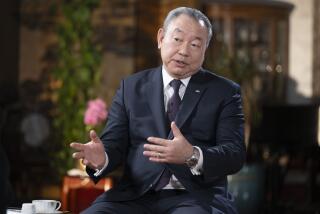Taiwan protesters end long occupation of parliament over trade deal

TAIPEI, Taiwan -- Hundreds of protesters in Taiwan ended a nearly monthlong blockade of parliament Thursday, giving leaders a fragile reprieve to finish a disputed trade pact with China, the island’s longtime political foe and biggest economic partner.
Student-led protesters filed out of the parliament assembly hall for a closing rally at the main gate after the legislative speaker said he would allow discussion of the trade deal only after passage of a bill that guarantees oversight of China-Taiwan economic agreements.
The end of the occupation brought a pause to Taiwan’s worst civil unrest since Beijing-friendly President Ma Ying-jeou took office in 2008. It also cleared the way for ratification of an agreement signed in June to ease trade restrictions, a boon for Taiwanese banks, tour operators and healthcare firms seeking more access to China’s huge markets. But the 24-day occupation also hurt the ruling party’s reputation ahead of elections.
Protesters tried to block ratification because they say Taiwan is edging too close to China, a political and military rival of more than 60 years. Some remained outside parliament Thursday and others said they plan to take their cause to other parts of Taiwan.
“I guess the trade pact is going to pass anyway,” said Nathan Liu, international affairs professor at Ming Chuan University in Taiwan. “But I really I don’t know what to say, because the students pose an unpredictable risk factor. They might do something wildcat.”
Departing protesters wore black shirts Thursday, symbolizing what they call a lack of transparency on deals with China. They may be asked to pay for property damaged during the March 18 break-in that started occupation.
China views Taiwan as a breakaway province and has not renounced the use of force to take control over the island if peaceful means eventually fail. Beijing hopes Taiwanese will favor unification as it opens China’s $9.4-trillion economy to the island’s investors.
Taiwan’s ruling Nationalist Party wants closer relations with China to ease political tension and boost the island’s economy. The government says export-reliant Taiwan needs free-trade deals and trade bloc memberships to stay competitive against South Korea and Southeast Asia.
A continued delay in passing the trade agreement could deter foreign countries considering their own deals with Taiwan, the president has warned. Ma’s administration has already signed 20 deals with China, including a 2010 pact that axed import tariffs in about 1,100 categories.
But the Nationalists, tarnished by the occupation and waves of sympathy protests outside parliament, face a more China-wary opposition party in local elections this year and in the 2016 presidential race.
Jennings is a special correspondent.
More to Read
Start your day right
Sign up for Essential California for news, features and recommendations from the L.A. Times and beyond in your inbox six days a week.
You may occasionally receive promotional content from the Los Angeles Times.






